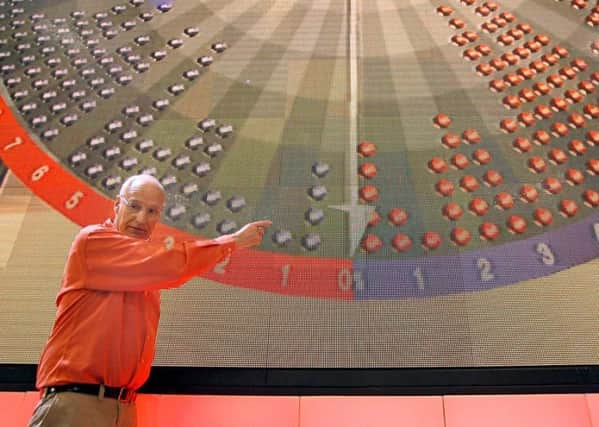General election: Why Boris Johnson may not be romping to victory – Ian Swanson


WITH less than two weeks to go until polling day, Labour got a boost at the weekend with polls suggesting a narrowing of the Tories’ lead. YouGov showed the gap between the parties down from 11 points to nine and BMG had it at just six.
Experts say once it falls to seven or below, the chances are no party will have an overall majority.
Advertisement
Hide AdAdvertisement
Hide AdThe Tory lead could shrink further as polling day approaches – but Labour cannot rely on a repeat of the 2017 election result when the party won more seats than anyone expected and denied Theresa May the majority she wanted.
Jeremy Corbyn’s personal popularity at the last election, especially younger voters, seems to have subsided, at least partly as a result of his failure to come out strongly for Remain.
But the party’s manifesto this time builds on the radical policies put forward in 2017 on nationalisation of rail, power and water and higher taxes on top-earners and corporations.
And while Boris Johnson is a more forceful opponent than Theresa May was, his reluctance to take part in some TV debates and interviews and his blustering refusal to answer questions when he does appear do him no credit.
Mr Johnson has also been shameless in his blatant politicisation of the latest terror attack in London, blaming Labour and promising a tougher line on imprisonment – despite the plea from the family of Jack Merritt, who was killed in the attack, that their son’s death should not be used as a pretext for more draconian sentences. One cartoonist summed it up with a depiction of the Prime Minister placing a “Vote Boris” placard next to the floral tributes on London Bridge.
Whether the attack and the political reaction to it influence the way people decide to vote next week remains to be seen. But it underlines the fact that the election is not just about Brexit – or independence.
Close race in many seats
There was much excitement among commentators last week over the massive YouGov poll of 100,000 voters across England, Scotland and Wales, which allowed individual predictions of how well each party would do in every seat.
It showed the Tories with an 11-point lead, winning a comfortable overall majority of 68 seats.
Advertisement
Hide AdAdvertisement
Hide AdBut in many of the seats, the Tories’ projected lead was quite small and if Labour can narrow the gap just a few points they would hold on to quite a few of these.
Here in Scotland, the poll suggested the SNP would win East Lothian and Midlothian, leaving Labour with just Ian Murray in Edinburgh South and one other MP. It suggested the SNP would gain eight to reach 43 seats, but the Tories would hang on to 11 of their 13 seats while the Lib Dems would lose one.
Polls have picked up a poor reputation after the last few elections and the Brexit referendum, so how much should we believe this one?
The YouGov 100,000 poll is being invested with heightened credibility because the equivalent survey in the 2017 election accurately predicted a hung parliament.
But here in Scotland, it predicted 50 seats for the SNP when the party ended up with just 35. So perhaps its projection of how the Scottish constituencies will go needs to be treated more warily.
The poll will also be updated as polling day nears. And there is plenty time left for things to change.
